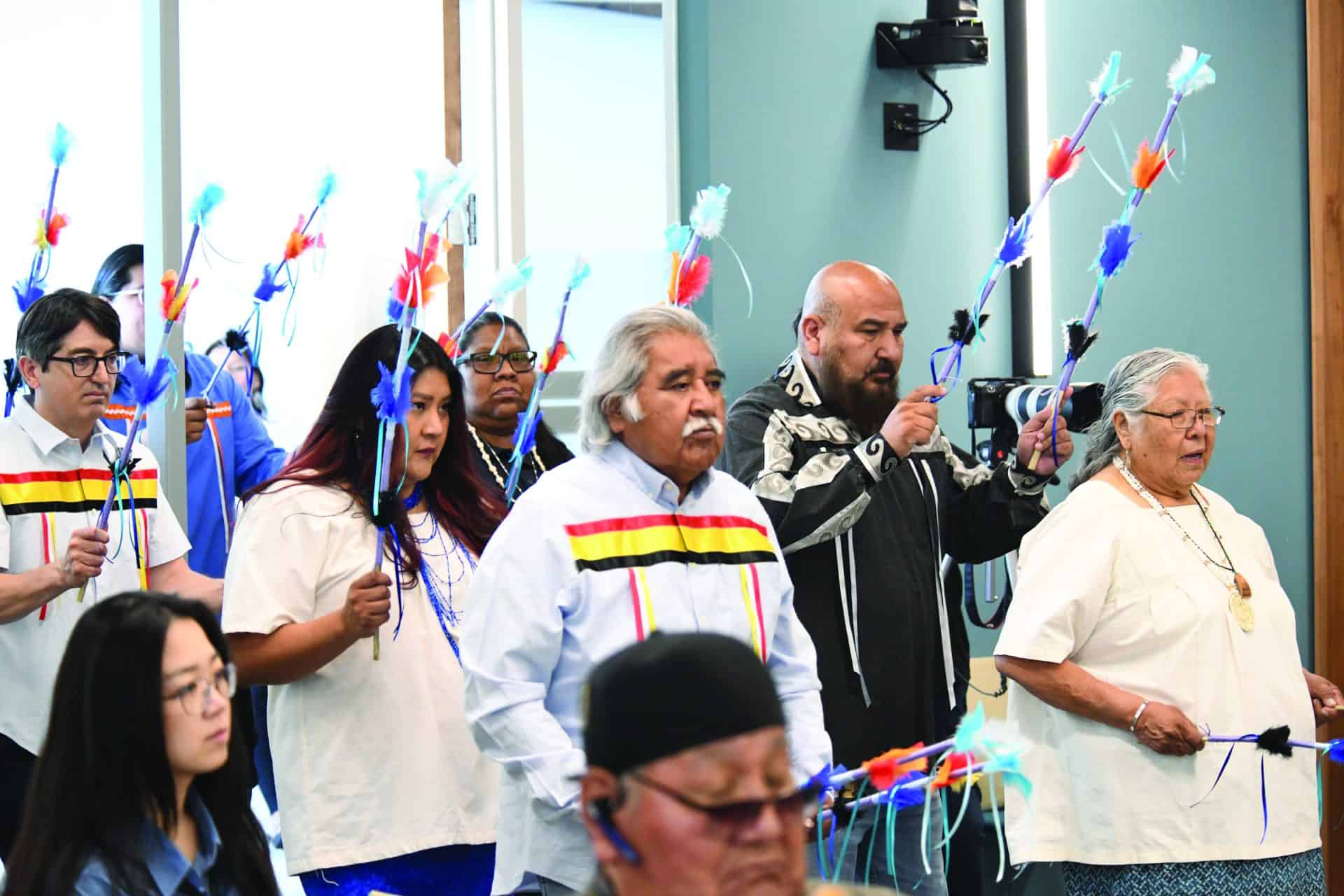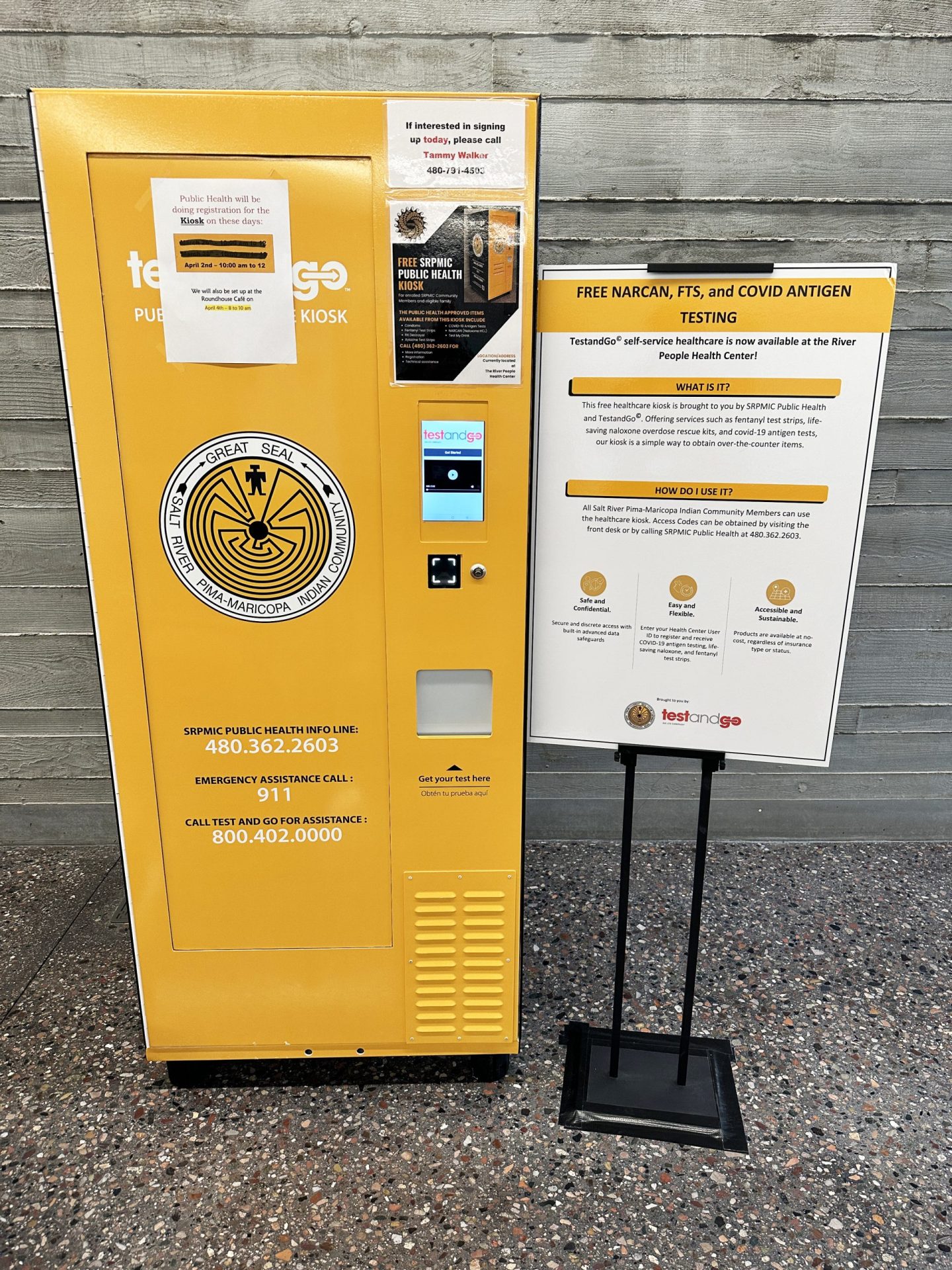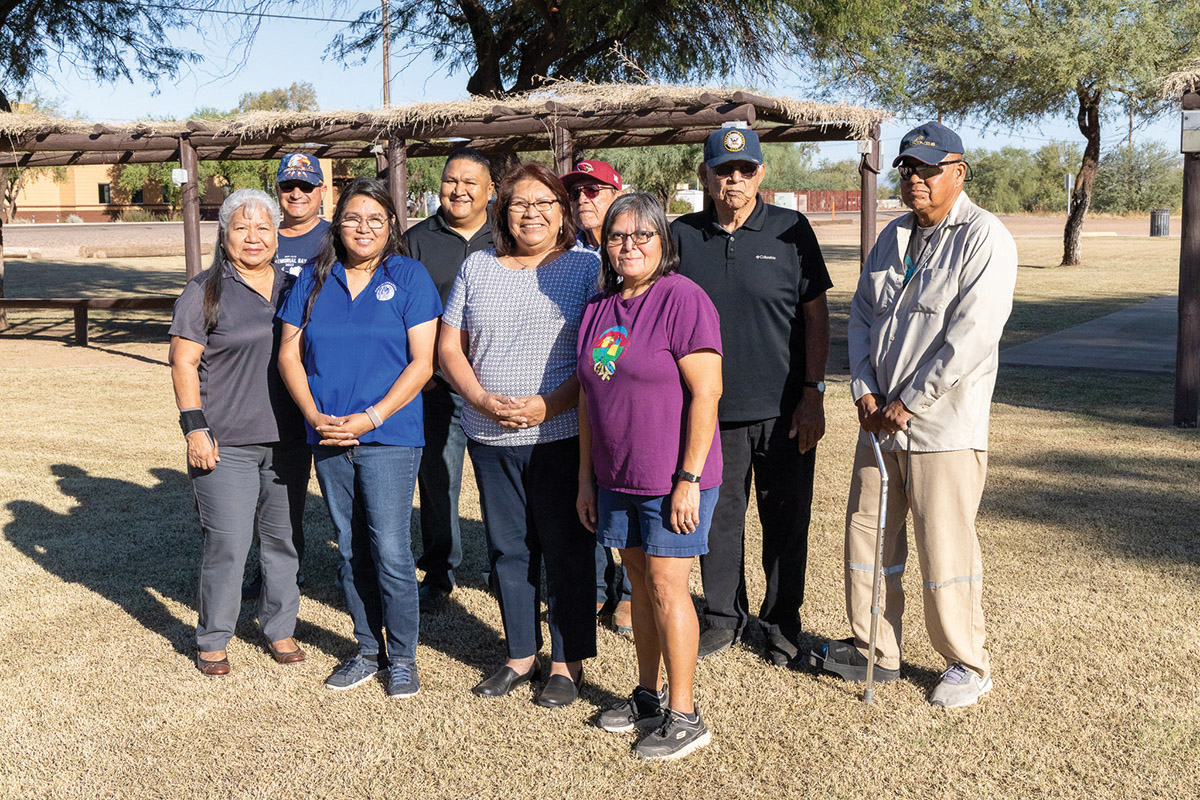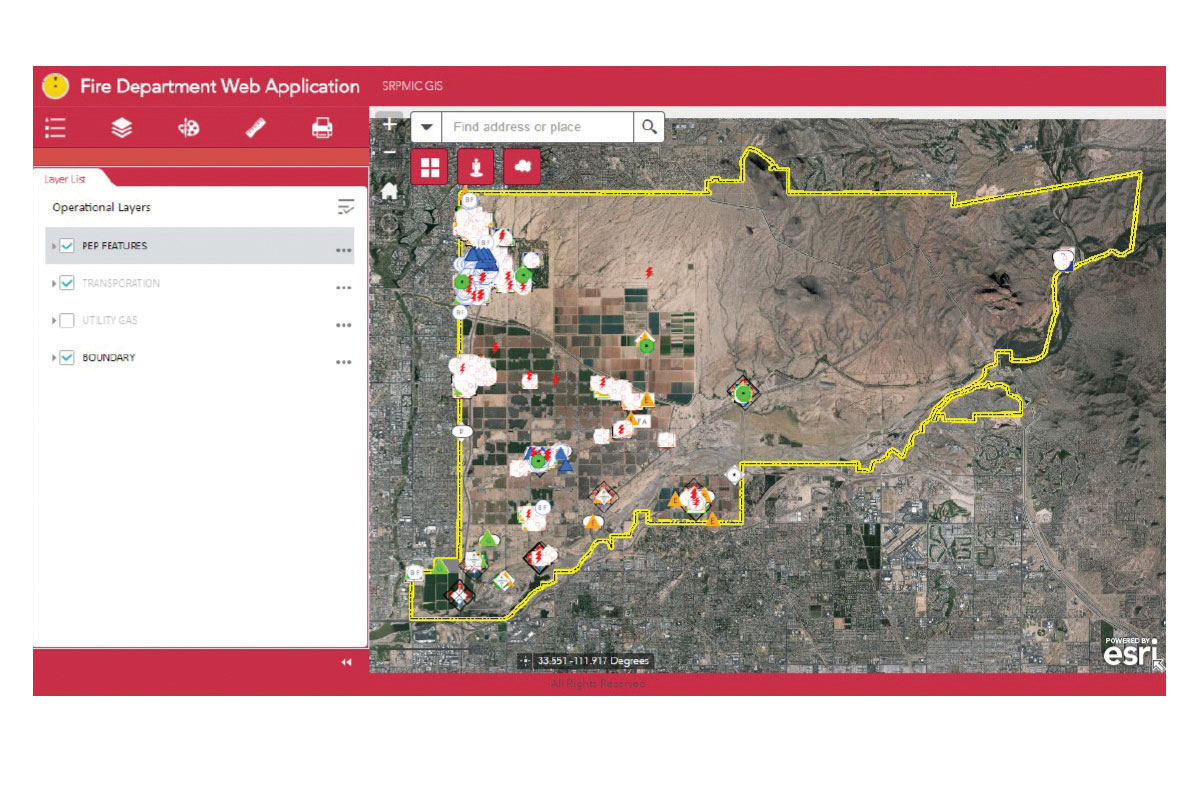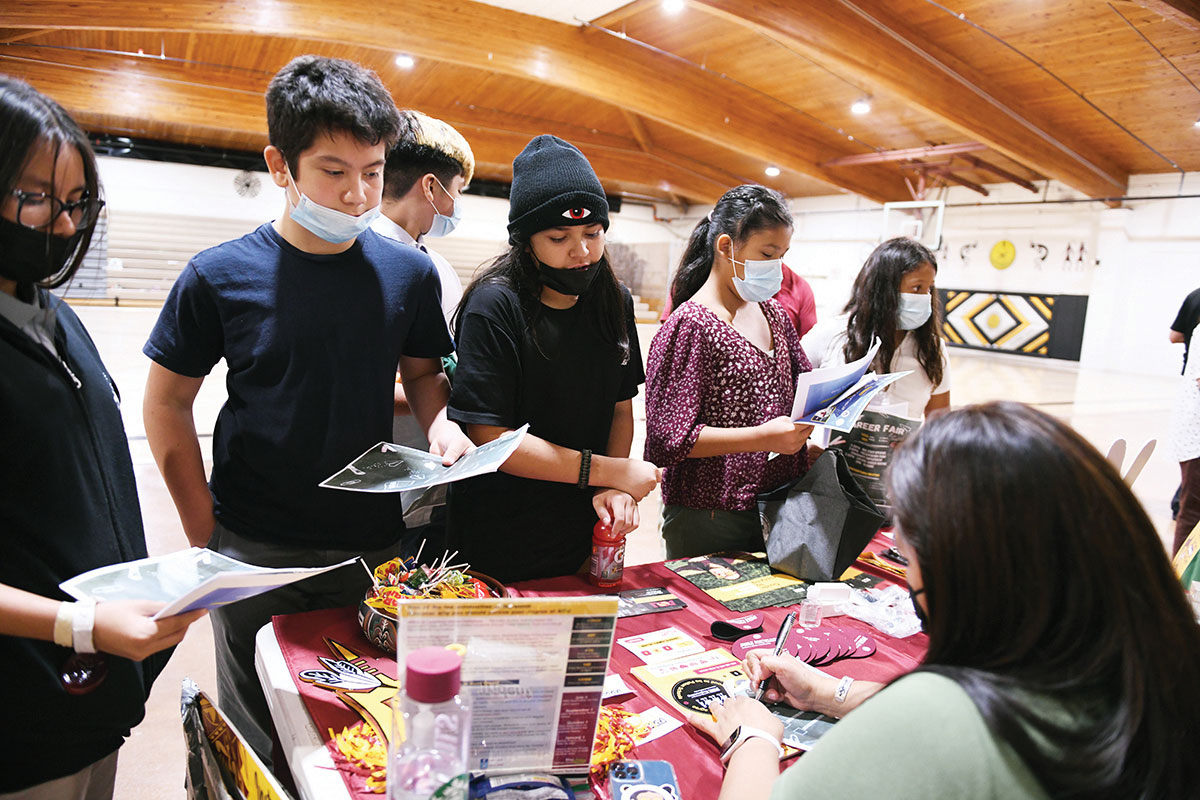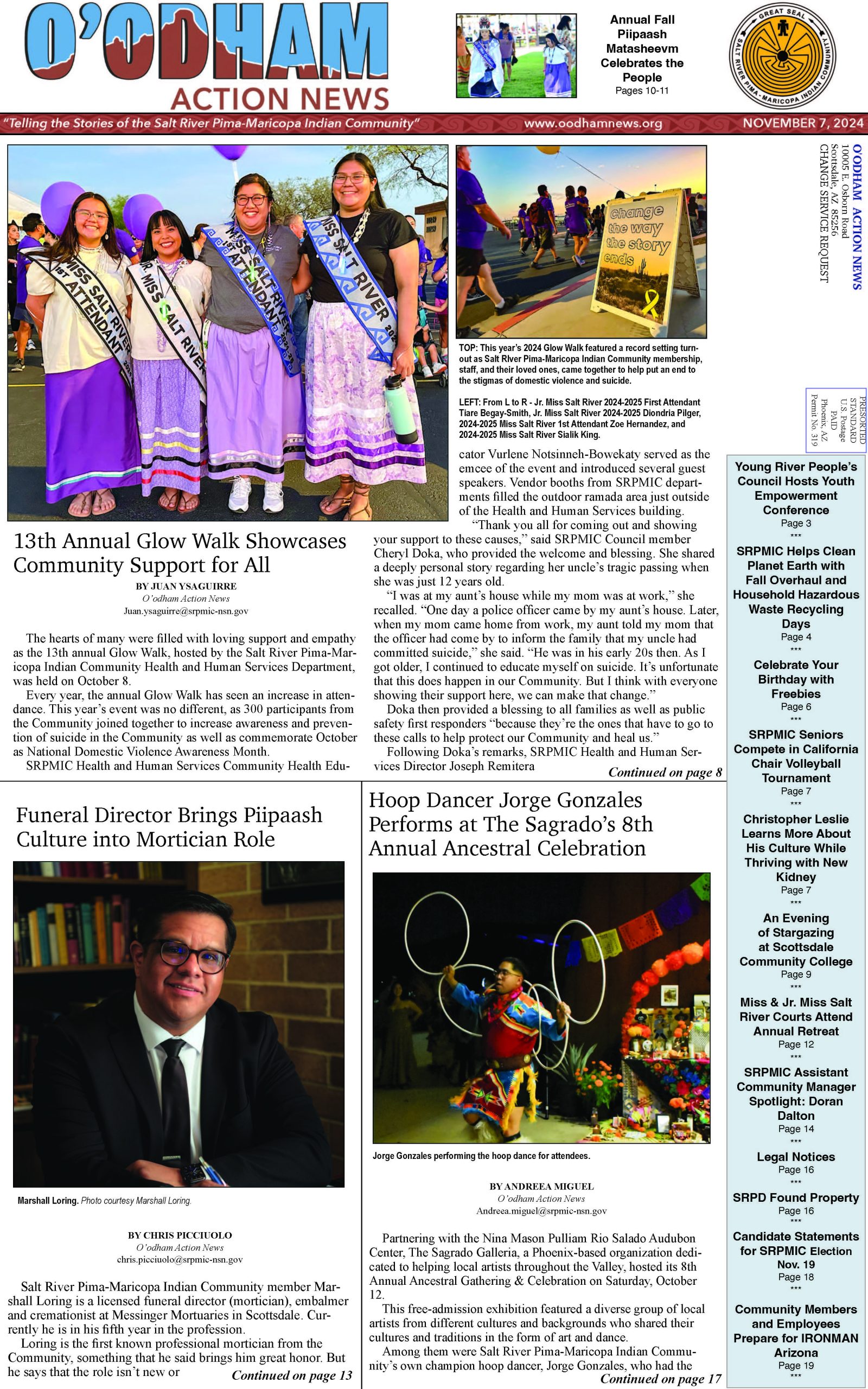VIEWS: 894
July 9, 2024CoLang 2024 Gathering Held at ASU, SCC
The languages of many Indigenous peoples around the world are in danger of becoming extinct due to smaller and smaller numbers of people who are familiar with them. Unfortunately, that includes the O’odham and Piipaash languages. The Salt River Pima-Maricopa Indian Community is working to prevent that through its O’odham Piipaash Language Program (OPLP), which offers events and training to help with Community language revitalization.
Every two years, people from across the United States and worldwide who work on preserving Indigenous languages come together for an event called the Institute on Collaborative Language Research (CoLang). It’s a four-week series of workshops, programs and learning sessions that brings together the world’s leading academics, community scholars and Indigenous language activists to provide leading-edge training in language documentation, revitalization and collaborative practices. CoLang 2024 was presented during June by Arizona State University (ASU) and the SRPMIC. The theme for 2024 was “Creating Partnerships, Honoring Neighbors, Building Capacity.”
The first half of the program, June 3-14, was hosted by ASU. During those first two weeks, ASU welcomed 145 participants and approximately 75 facilitators who traveled from Pakistan, New Zealand, Canada, Brazil, Australia, Bolivia, Costa Rica, Japan, France, Guatemala and Mexico, including tribal nations from all over the U.S. and Arizona.
The second session, June 17-28, took place on tribal land at the Scottsdale Community College’s Indigenous Cultural Center (ICC), with presentations focusing on the O’odham, Piipaash and Cook Island Māori languages.
Vice President and Special Advisor to the President for American Indian Affairs at Arizona State University – Office of Government & Community Engagement Jacob C. Moore, EMBA, said that despite the Sonoran Desert summer heat, the entire event went relatively smoothly.
“The ASU President’s Office and Knowledge Enterprise played critical roles in ensuring that CoLang 2024 had the necessary resources needed to host 120 global participants in the dorms for two weeks, along with participation from local tribal language programs and practitioners,” said Moore.
“The entire four-week CoLang 2024 institute was a significant commitment by both co-sponsors and the positive impacts from this event should further strengthen the revitalization of Indigenous languages well into the future.”
During the opening ceremony of CoLang, staff from the SRPMIC Cultural Resources Department (CRD) and the OPLP spoke at the podium, including CRD director Kelly Washington and OPLP manager and CoLang 2024 co-director Luis Barragan.
“The Salt River Pima-Maricopa Indian Community and its Cultural Resources Department are honored to host the CoLang 2024 Practica session. It is my pleasure to invite you all to explore, learn and utilize all that we have to offer,” said Washington.
Barragan said that the OPLP is happy to be part of CoLang and to have been involved in working with all the workshop facilitators.
“For us at OPLP, one of the main things we want to do is showcase our program [at CoLang]. We have a staff of language workers who work tirelessly every day, preserving and teaching the O’odham and Piipaash languages,” said Barragan.
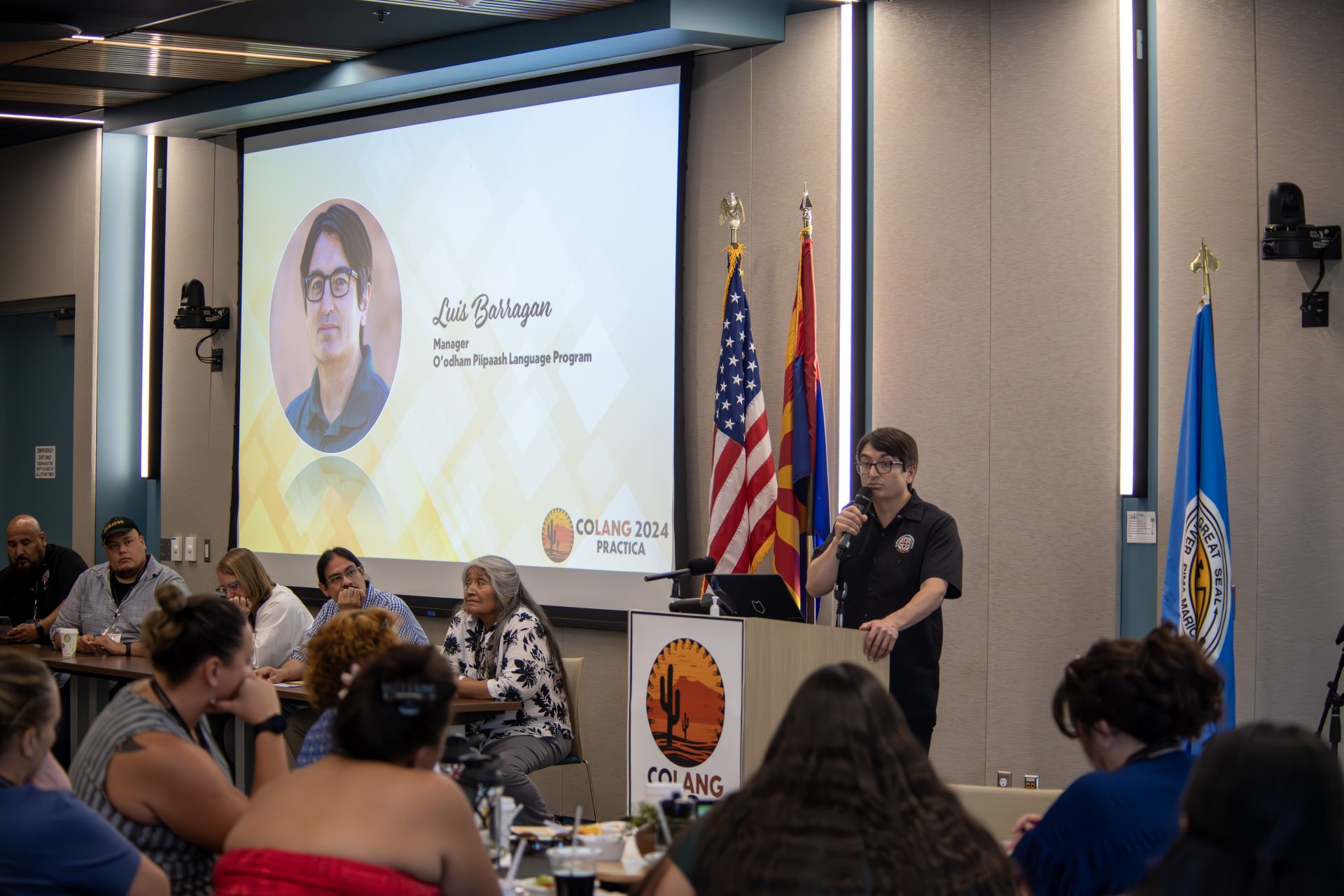
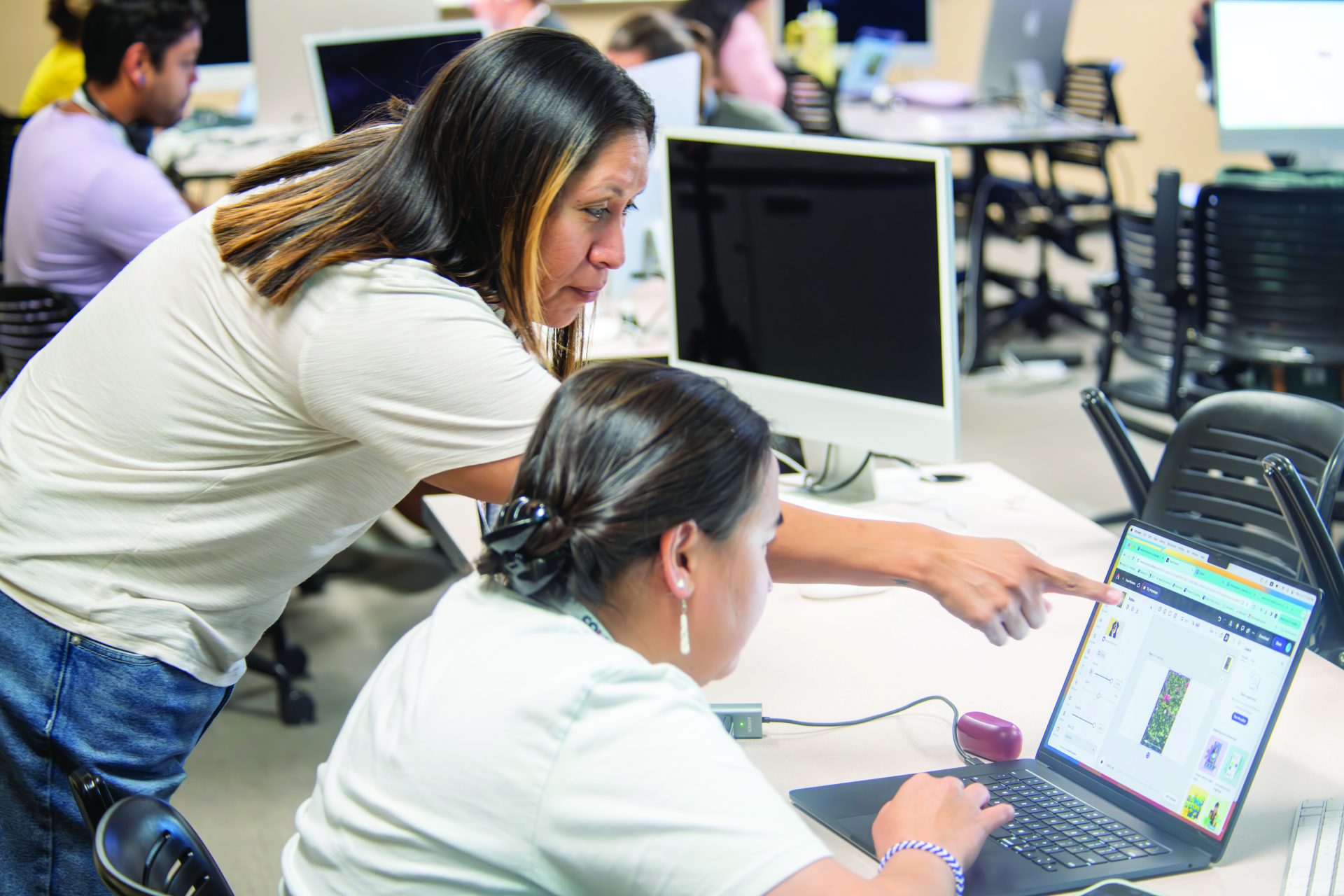
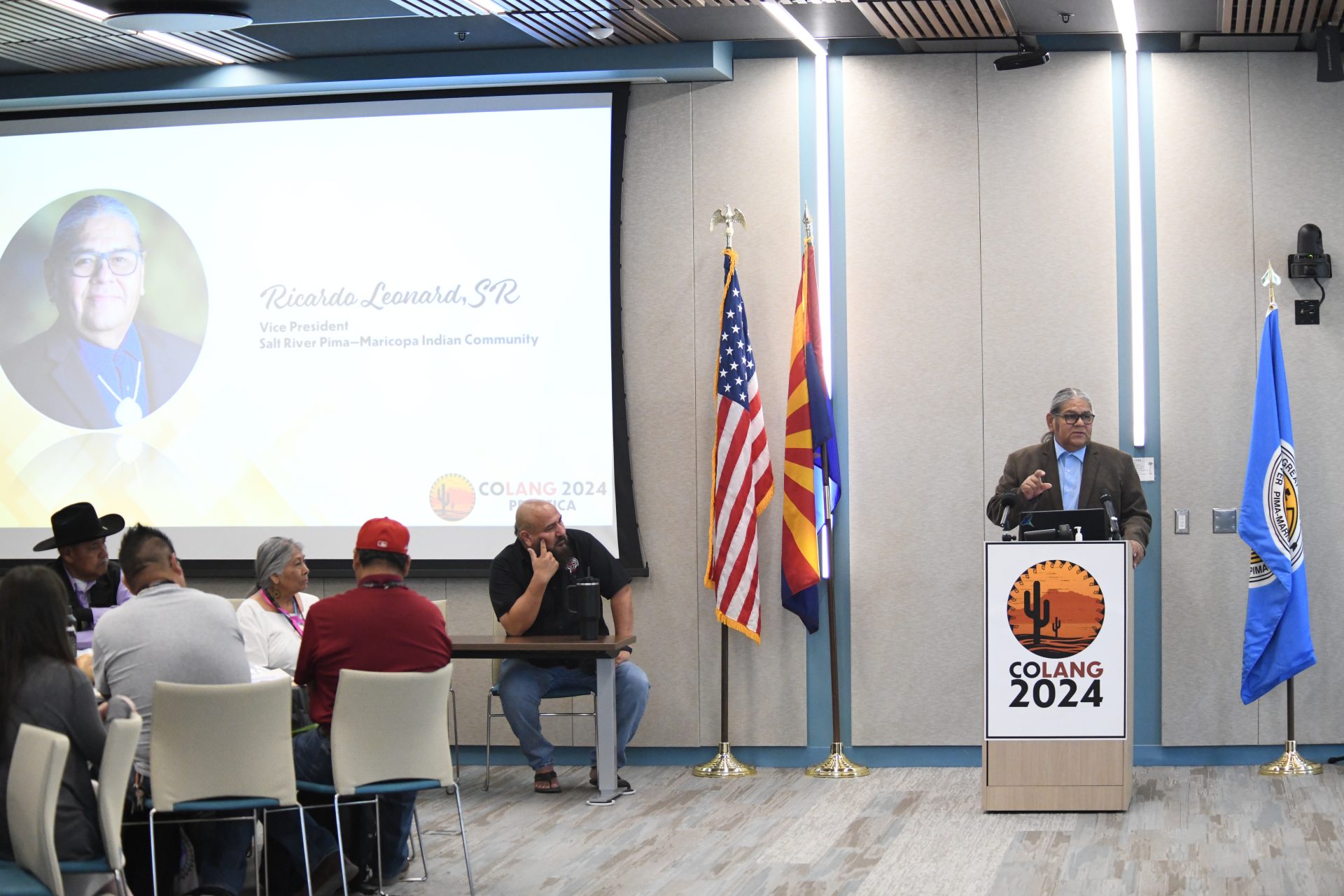
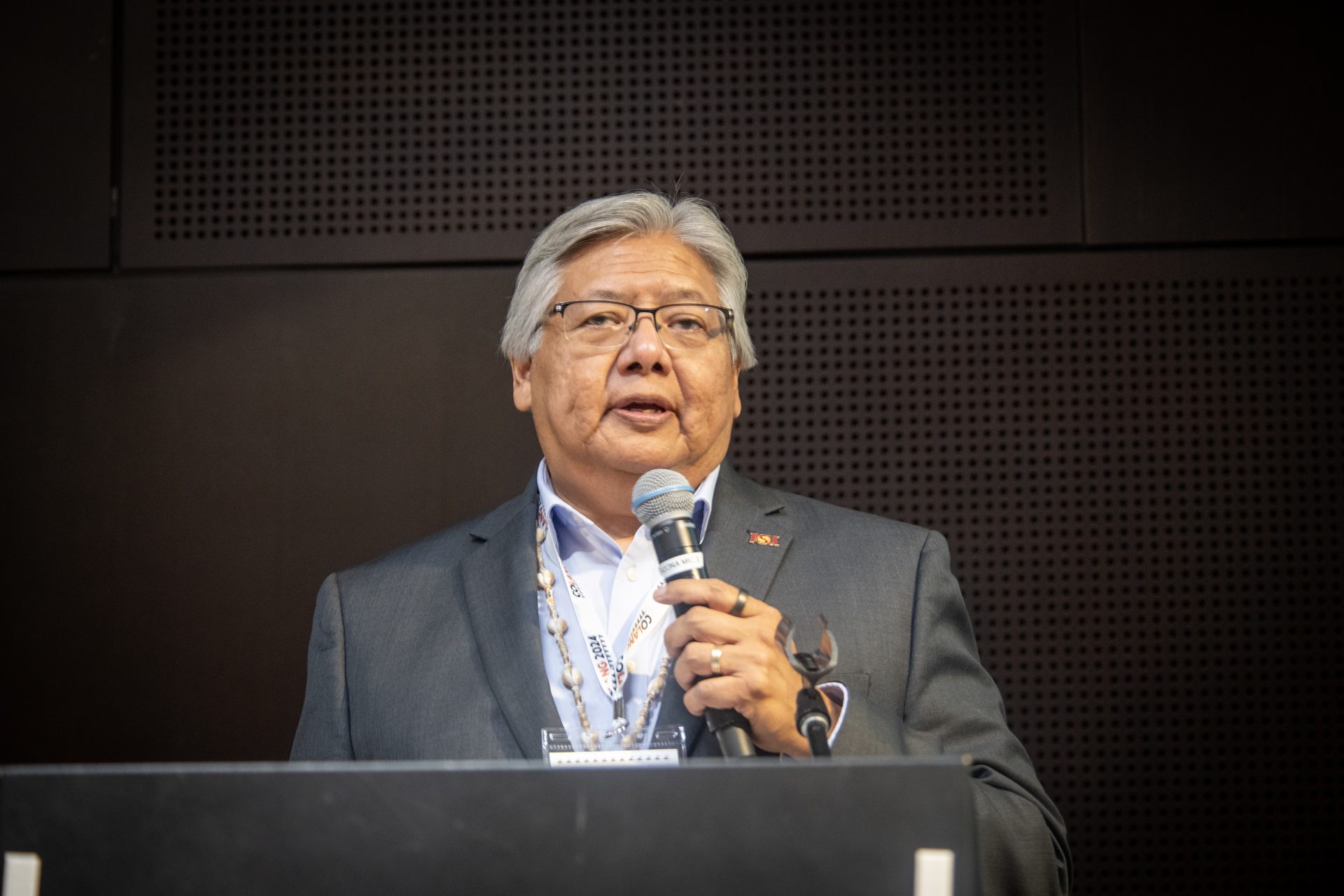
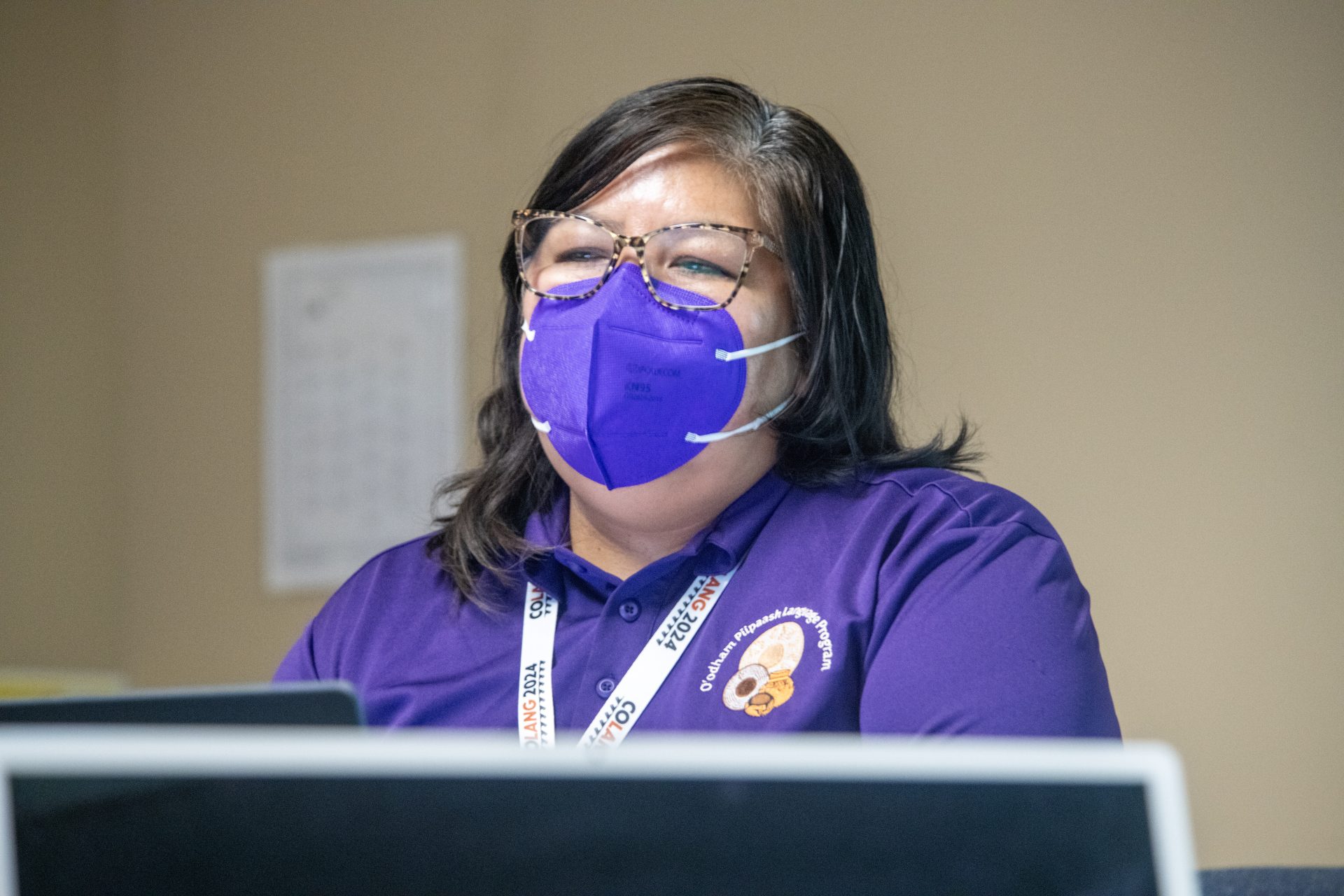
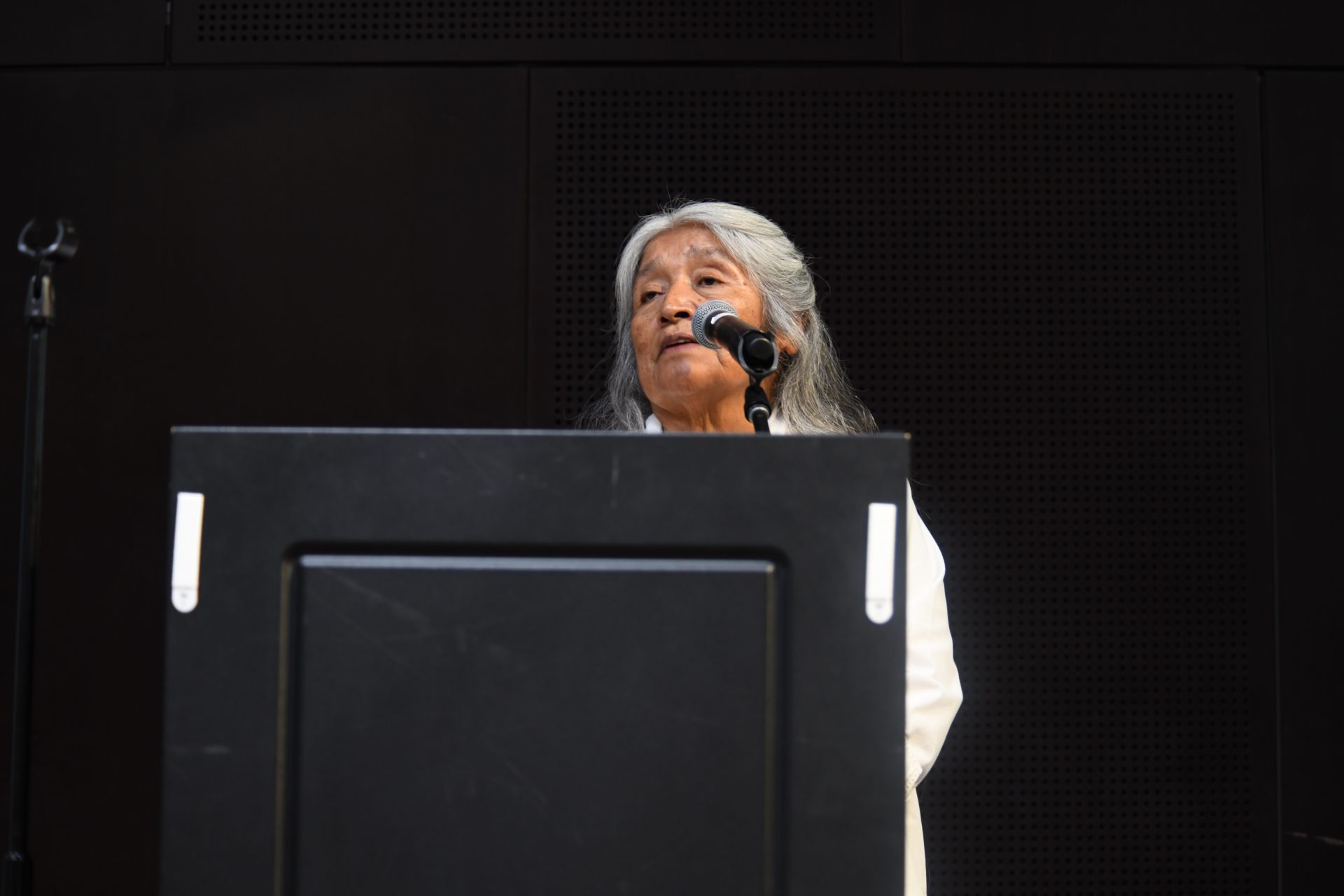
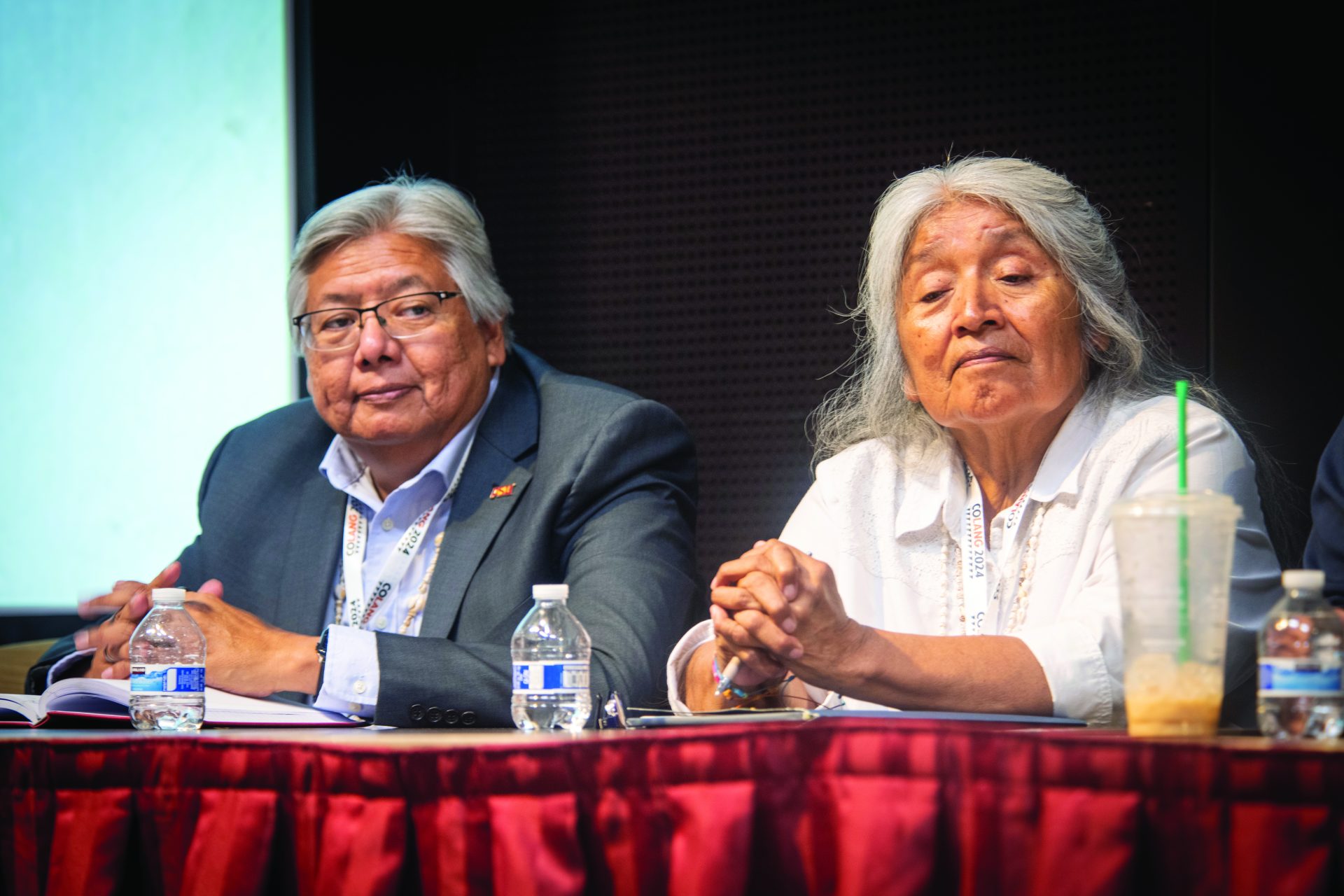
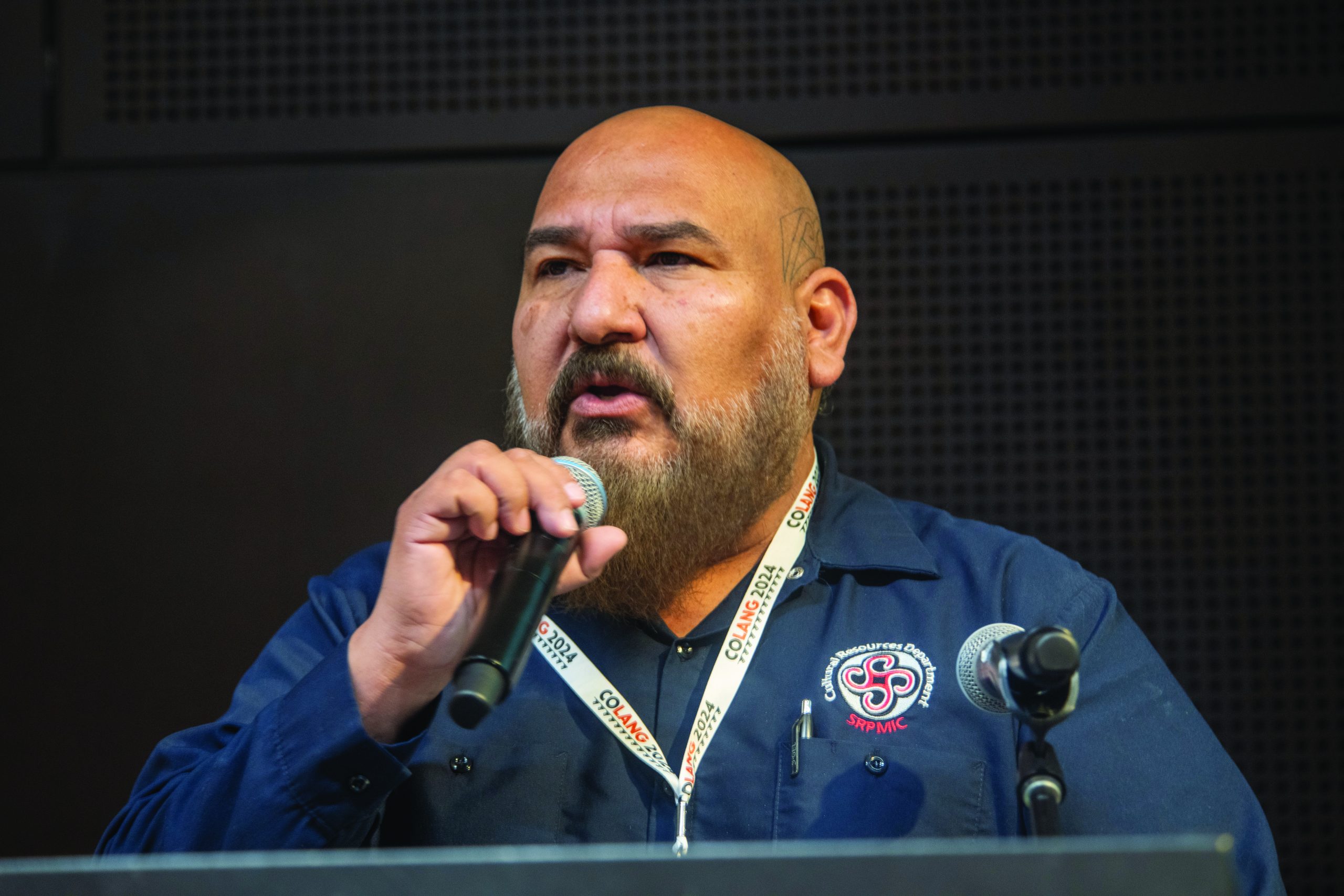
Some of the workshops taking place at ASU included “Intro to Linguistics: Morphology/Syntax,” “Documenting Lullabies for Language Revitalization” and “Models Talks: Mutsun Language Revitalization.”
CRD Multimedia Supervisor Helema Andrews and Multimedia Specialists Chandra Narcia and Tasha Silverhorn taught a class every day during the first week called “Creating a Language Learning Video Using Open Source Software.”
During the class, one of the sessions that Narcia taught explored creating cultural language-learning videos using different fonts, transitions, animations and designs.
The two-week practica sessions held at Scottsdale Community College’s ICC gave approximately 60 participants an opportunity to apply the skills they learned in the workshops within an intensive, real-life documentation setting.
CRD Education Specialist Malia Garcia opened the ceremony at the ICC by introducing O’odham gourd singers and dancers performing a song about the bluebird. SRPMIC elder Rechanda Howard gave the opening prayer.
The Akimel O’odham practicum was facilitated by Heidi Harley, Cody Achin, Chester Antone, Diane Cashoya, Malia Garcia and Eleanor Santos-Higgins. The focus of the practicum was on linguistic documentation and analysis of O’odham to support the development of educational materials.
The Piipaash practicum, which focused on group mentor-apprentice methodologies for teaching Piipaash in an immersion setting, was facilitated by Mosiah Bluecloud, Kyrin Green, Isabella Dockerty, Christina Lopez, Aarick Mack and Kelly Washington.
Throughout the final two weeks, the practica dove into topics such as collaborative language work, ethics, orthographies and data management.
In addition to the schedule of language workshops and presentations, CoLang offered attendees the chance to enjoy evening and weekend activities throughout June such as dinners, receptions, movie nights and a field trip to the Heard Museum in Phoenix. On June 18, Cultural Sharing Night took place at the Round House Café, featuring traditional food, singing and dancing (see related story).
The CoLang Farewell Dinner was held on June 27, and a special closing ceremony presented by the SRPMIC was showcased by the CoLang practica participants.
At the end of CoLang 2024 on Thursday, June 27, participants gathered for a farewell dinner in the ballroom at the Courtyard Marriott Salt River, along with a closing ceremony presented by the SRPMIC.
If you are interested in helping to preserve endangered Indigenous languages or want to attend the next CoLang in 2026, go online to www.CoLang2024.org for detailed information.

